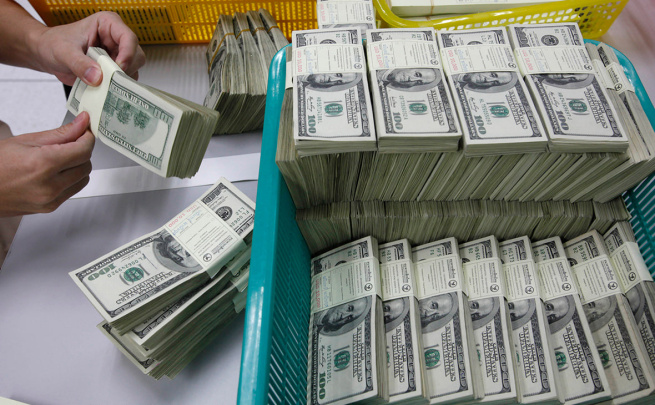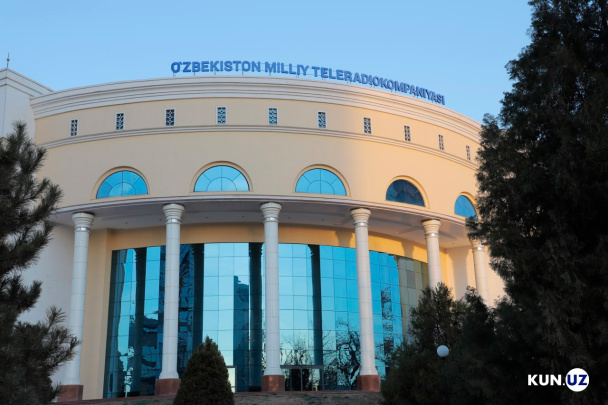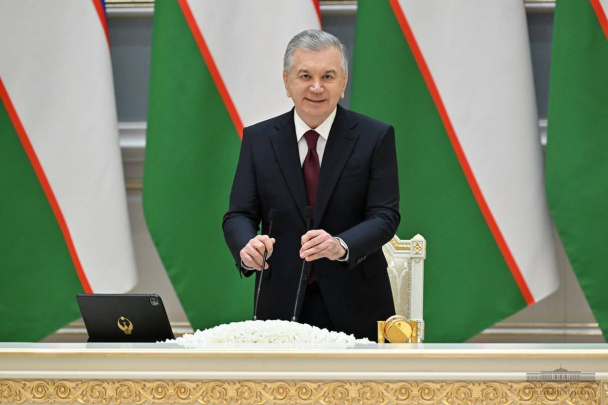President approves increase in 2024 state budget expenditures and external debt limit
President Shavkat Mirziyoyev has approved amendments to the 2024 state budget, which include increasing expenditures for ministries and state agencies by 9.98 trillion UZS. The external debt ceiling has been raised from $5 billion to $7.3 billion. The additional borrowing will be used for the development of the housing market and strengthening defense capabilities.
The Ministry of Economy and Finance, as usual, did not seek parliament's approval to increase expenditures throughout the year, nor did it provide lawmakers with explanations for specific expenses. Instead, the bill proposing amendments was introduced only at the end of the year.
For example, in Kazakhstan, the government made ten budget adjustments throughout the year, each of which passed through parliament, where lawmakers received detailed explanations for the changes.
As previously reported, discussions on the amendments in Uzbekistan's Legislative Chamber lasted only 9 minutes (compared to around 20 minutes in 2023 and 30 minutes in 2022). The speech by the Deputy Minister of Economy and Finance, Ahadbek Haydarov, lasted only 5 minutes. The new parliamentarians then approved the document in three readings without any questions or debates. In previous years, some members of parliament raised questions during such discussions.
None of the deputies voted against the changes, and neither the government nor the deputies provided a clear rationale for the need to increase state expenditures.
On December 18, the Senate also approved the law, but senators spent more than an hour discussing the amendments, with Ahadbek Haydarov’s speech lasting 27 minutes.
Increase in state expenditures
According to the amendments, the expenditures for ministries, committees, agencies, and other state bodies have been increased by an additional 9.98 trillion UZS (or $775.8 million), bringing the total to 265.4 trillion UZS, up from the previously approved 255.4 trillion UZS.
An additional 2.43 trillion UZS (totaling 11.98 trillion UZS) will be allocated for wage increases, pensions, allowances, and some types of services provided by budgetary organizations.
According to Ahadbek Haydarov, the increase in state expenditures is due to the following reasons:
- Transfers to the Education Loan Fund: 841 billion UZS (to cover expenses already allocated by banks);
- Distribution of inhalation drugs for the treatment of allergic and secondary immunodeficiency diseases for patients listed in the Social Protection Unified Registry: 30 billion UZS;
- Strengthening the material and technical base of the Ministry of Culture and the Arts, as well as providing material incentives: 100 billion UZS;
- One-time aid payments for vulnerable families during the heating season and subsidies to cover the difference between basic and increased rates for electricity and gas: 592 billion UZS;
- Resolving urgent infrastructure issues in local neighborhoods: 1.344 trillion UZS, including the construction, reconstruction, repair, and equipment of 203 schools, kindergartens, and medical institutions (304 billion UZS), 374 roads and bridges (374 billion UZS), 131 projects to improve drinking water supply (257 billion UZS), and 511 electricity supply improvements by (241 billion UZS);
- Capitalizing the Entrepreneurship Development Company: 300 billion UZS;
- Increasing the state share of the charter capital of state banks to finance family entrepreneurship and small business projects — 2.5 trillion UZS.
Ahadbek Haydarov also mentioned that by the end of the year, it is planned to reduce expenditures by 1 trillion UZS through optimization of vacant or inefficiently duplicated positions in state institutions. In late October, the President had already reduced administrative and production staff by 5.2%.
The government anticipates saving 2 trillion UZS through a reevaluation of criteria for identifying low-income families and the redistribution of child allowances and financial aid based on social justice principles.
Additionally, 1.7 trillion UZS in development expenditures for ministries and agencies are expected to be saved in 2024.
The saved 4.1 trillion UZS will be redistributed for additional expenditures as outlined above.
In accordance with the Cabinet of Ministers' decision of March 14 (the document is not available in open sources), within the framework of the program for developing social infrastructure, 4 trillion 373 million UZS allocated in local budgets for the construction and renovation of kindergartens and schools were transferred to the national budget.
Additionally, 3.95 trillion UZS were allocated for capital investments in the design, construction (reconstruction), and equipping of facilities by the Ministry of Preschool and School Education.
Haydarov noted that an engineering company had been established under the Ministry of Construction for designing educational institutions. A prototype design for schools was developed, which saved 500 billion UZS that were redirected to the construction and renovation of more than 80 educational institutions. This initiative will create an additional 19,000 school places and 4,000 kindergarten spaces.
To fulfill the President's directives, 220 billion UZS have been allocated for the construction and renovation of two public highways and seven internal roads in the Kashkadarya region, 100 billion UZS for the repair of a 92-kilometer stretch of road connecting seven districts in Surkhandarya, 49 billion UZS for the repair of 257 internal roads in Syrdarya, and 100 billion UZS for road repair works in Khorezm region.
Additionally, adjustments are being made to the indicators of state-targeted funds as well as the Fund for Reconstruction and Development (FRD), which is the country's sovereign wealth fund.
At the start of the year, the balance of state-targeted fund resources stood at 12.84 trillion UZS (expected to be 11.5 trillion UZS according to the current law), while revenues were projected to be 64.77 trillion UZS (with a forecast of 65.25 trillion UZS), state budget transfers amounted to 34.06 trillion UZS (forecasted at 32.19 trillion UZS), and expenditures totaled 96.69 trillion UZS (projected at 96.1 trillion UZS).
An additional 100 billion UZS (bringing the total to 600 billion UZS) is being allocated to the Republic Target Fund to compensate for property damage suffered by individuals and legal entities. This pertains to the expropriation of land from the population and entrepreneurs for state purposes.
At the beginning of the year, the FRD was expected to close with a surplus (revenues exceeding expenditures), but by the end of the year, a negative balance of 363.67 billion UZS is now anticipated.
Specifically, the fund's revenues (driven by higher gold and other raw material prices, with part of the proceeds transferred to the FRD) are expected to increase from 18.87 trillion UZS to 20.82 trillion UZS (+10.3%), while expenditures are projected to rise from 18.85 trillion UZS to 21.18 trillion UZS (+12.4%).
Increase in external debt limit
The amendments to the "State Budget for 2024" law also raise the limit on external borrowing. Initially, external debt was capped at $5 billion, with new international agreements limited to this amount. Of this, $2.5 billion was planned for budget support (to cover a deficit) and the remaining $2.5 billion for investment projects.
However, the government has exceeded these limits, as it did in previous years. Through the amendments, the external debt ceiling has been raised by an additional $2.3 billion, bringing the new limit to $7.3 billion. This includes $3.2 billion (+$700 million) for financing the budget deficit and $4.1 billion (+$1.6 billion) for investment projects. Last year, the limit was increased from $4.5 billion to $5.5 billion.
Ahadbek Haydarov emphasized that the additional debt would be used for vital social projects, including the development of the housing market, defense capabilities, and other critical infrastructure initiatives.
The budgets for the Ministry of Defense, Ministry of Internal Affairs, State Security Service, and the National Guard are included in the "other organizations" expenditure category. This category has increased by 2 trillion 480 billion UZS to 47 trillion UZS, with funding planned to rise to nearly 50 trillion UZS in 2025.
According to Haydarov, all efforts will be made to keep the consolidated budget deficit within the 4% of GDP threshold as set by law.
Senator Moyra Toshova raised a question regarding the sharp increase in the external debt limit, noting that this was the first such change since 2021. She asked about the effectiveness of the projects funded by this debt and whether there were plans to reduce the external debt. The representative of the Ministry of Economy and Finance responded that a written answer would be provided.
Uzbekistan's state debt is expected to increase by $4.8 billion in 2024, reaching $39.7 billion, up from $34.9 billion. By 2027, the state debt could rise to $55.9 billion, although the Ministry of Economy and Finance indicates that this increase will have a "minimal" impact relative to the GDP (36.7%).
Related News

19:58 / 26.12.2024
Uzbekistan’s total external debt surpasses $60 billion

17:53 / 26.12.2024
Gov’t increases budget allocations for National TV and Radio Company in 2025

17:05 / 25.12.2024
Uzbekistan approves state budget for 2025

16:35 / 21.12.2024



